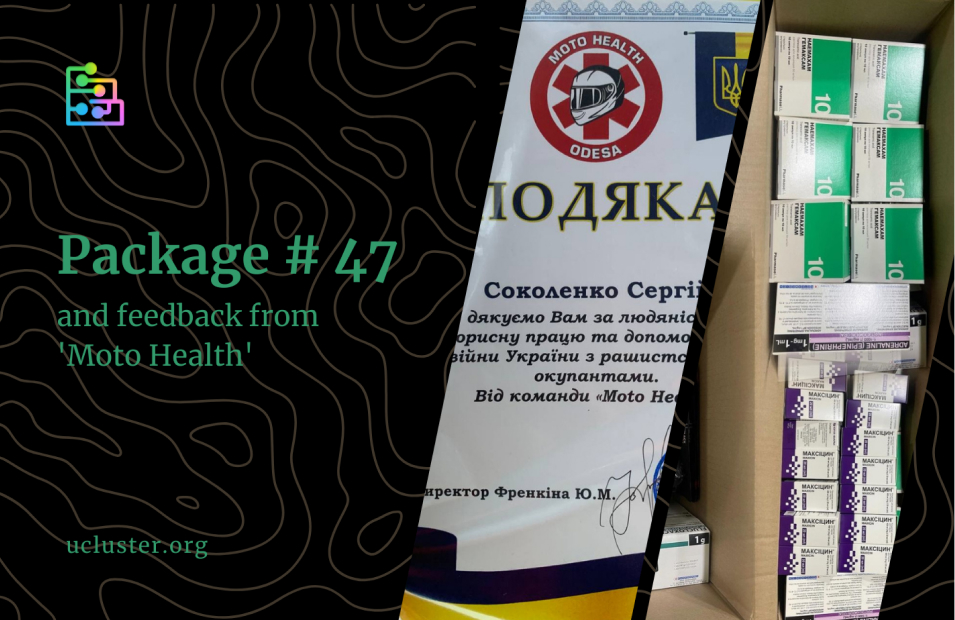Science fiction and Hollywood TV series are becoming a reality thanks to Ukrainian technology startups such as A.D.A.M., which helps customers print new organs, bones, or tissue on a 3D printer. The startup is attempting to solve a challenging task – creating a platform for producing biomaterials for reconstructive surgery, installing special 3D-bioprinters in clinics and allowing customers to “print” the necessary bio parts on those printers. As part of the process, the bone graft implants dissolve as new bone grows, reducing the need for additional surgery.
Co-founder: Denys Gurak
Founded in 2018
Ukraine Location: Odesa, Kyiv.
USA Location: Farmington

When the Odesa startup Kwambio took part in the Techstars accelerator in the US, Denis Gurak, the current CEO of A.D.A.M. met with Kwambio’s CEO Vladimir Usov. The two future business partners realized that industrial ceramics 3D printing technology could also be used for healthcare. Denys and Vladimir formed A.D.A.M. in 2018, with the backing of the venture fund WeFund Ventures, where Denys is a partner. Since 2020, the company is headquartered in the United States. Today, A.D.A.M. positions itself as a 3D bioprinting platform to manufacture human bones and organs for reconstructive surgery.
Denys is an expert in the field of global medical trials and has extensive experience in regulatory work after spending four years implementing European legislation in the regulation of pharmaceuticals and medical devices in Ukraine. “This is one of the reasons why I became interested in bio-printing. I have the necessary experience to bring the product to market,” says Gurak. In 2018, the startup closed a Seed Round.
The company currently has three offices; one in Connecticut, where business development, marketing, and sales are located, one in Kyiv, where the executive team is, and one in Odesa, for research and development. Recently, an American orthopedic surgeon Andrew Pedtke joined the A.D.A.M. team as Chief Medical Officer. In the past Dr Pedtke founded an orthopedic company LIM Innovations.
3D bioprinting technology
A.D.A.M. develops infrastructure for custom implants, providing a full range of related services remotely or on-site. The team decided to focus on bone implants initially and has its own 3D printing technology and composite materials. The prototypes have already passed preclinical tests.
“On the plus side, because of the United States’ innovative approach to health care, we don’t need to do research on humans to get market access.”
Denys Gurak, CEO, A.D.A.M.
The company is seeking permission to begin the sales phase for bone implants in 2022. Initial research on rats has already been conducted in Ukraine. Still, permission to enter the US market is possible only at the end of 2022, after additional animal trials required by the US Food and Drug Administration (FDA).
Progress-to-date
The business model of A.D.A.M. is quite tricky because it requires cooperation with hospitals and insurance companies that reimburse the implants. The company has already begun the process in New England and Connecticut, the “insurance capital of the United States.”
“We are now in the process of defining a product/market fit and building a go-to-market strategy,” says Denys. “Our product is already validated, we can print implants, and they work. Now we pass the regulatory process and perfect the product.”
Bone implants are just the beginning. In the future, A.D.A.M. plans to launch research on blood vessels, heart valves, and bronchial implants. With a modification of extrusion printing technology, the company can print soft tissues and plant stem cells on them, which will allow other parts of the body to regenerate. When a person needs to replace some part of an organ or tissue, they can come to a certified clinic and get a 3D-printed implant.
“We want A.D.A.M. to become a company that can print a portfolio of human tissues on-demand in clinics.”
Denys Gurak, CEO, A.D.A.M.
Part of A.D.A.M.’s business model is a platform that creates a virtual atlas of the human body from CT and MRI scans and where 3D modelling of implants will take place. Denys says that they strive to automate and digitalize this process as much as possible. After ordering and modeling an organ, a person could get their implant within a few hours.
Technology-as-a-service
A.D.A.M. has two types of competitors: implant manufacturers and large corporations like Johnson & Johnson. They control the market and are ineffective, Gurak said, as it takes several weeks to deliver an order, with the cost of an implant reaching tens of thousands of dollars. A.D.A.M. wants to simplify this, reduce the price to several thousand dollars, and cut the wait time to 1-3 days, depending on whether the implant will be printed at the hospital or delivered from the company’s production site.

Moreover, A.D.A.M. wins on the properties of materials, says Denys. “Titanium leaves residues in the body, and patients often need to do revision surgery to fix the implant mechanically.” A.D.A.M. implants are organic and biodegradable, meaning they are replaced by patient’s bone tissue while the implant degrades.
While competitors develop similar materials and 3D printers, A.D.A.M. differs from them in that it has a complete end-to-end ecosystem. All competitors produce either software or one type of material or printer. A.D.A.M., on the other hand, sells the technology-as-a-service, including materials, modeling, and 3D printing. In such a business model, patients can get an implant faster, hospitals can provide better treatment, and insurance companies have to pay less in reimbursements.
The future of deep-tech startups in Ukraine
Denys is a fan of Ukrainian engineering and how it can develop unique things. After working at UkrOboronProm, the Ukrainian defense manufacturing conglomerate, he began investing in startups because he realized that Ukraine has unique engineering competencies. Denys believes that deep tech startups are the future. “We have many scientific schools which constantly graduate engineers, who are still, unfortunately, bought by China, Russia, the United States, EU States. I want A.D.A.M. to be an example that one can make such a moonshot from Ukraine to the United States. The more such companies there are, the more we can show our unique competences on a global stage.”
“Ukrainians can engineer a Death Star if necessary.”
Denys Gurak, CEO, A.D.A.M.
Today, there is a severe organ shortage, as the world population lives longer due to medical advances. Since 2013, the number of patients who need an implant has doubled, while the number of available donor organs has hardly moved. Thanks to startups like A.D.A.M., people have more opportunities to prolong active life and improve their physical capabilities through bioengineering and implants. And for the transhumanists among us, the future can come soon enough when people go beyond their physical bodies with the help of this technology.






